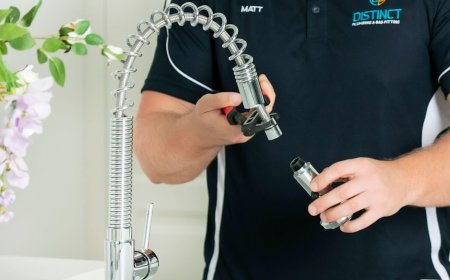Transforming Nursing Education Through Competency-Based Learning
Blog about Transforming Nursing Education Through Competency-Based Learning

In todays fast-paced healthcare environment, nursing professionals require more than just foundational knowledgethey must demonstrate adaptability, evidence-based practice, and clinical confidence. Traditional academic structures, while valuable in their time, often fall short in equipping nurses with these practical capabilities. Fortunately, modern learning models are bridging this gap. Among the most influential of these innovations is capella flexpath assessments, which are redefining how nursing students engage with and master critical healthcare concepts.
The FlexPath format centers on competency-based education (CBE), a learning model that places mastery of skills and knowledge above time spent in a classroom. Instead of being bound by fixed schedules, learners progress at their own pace, completing assessments that mirror real-world healthcare challenges. This model emphasizes demonstration of learning rather than mere completion of coursework. The result is a more efficient, focused, and personalized academic journey, particularly suited for adult learners, working professionals, and those returning to school to further their careers.
Capella Universitys FlexPath system is a prime example of how institutions are evolving to meet the unique needs of todays nursing students. This model doesnt just offer flexibilityit delivers a transformative educational experience grounded in relevance, rigor, and applied knowledge. By allowing learners to show their competencies in real-life scenarios, it prepares them not only to pass assessments but also to excel in their nursing careers.
The Shift Toward Competency-Based Nursing Education
Competency-based learning represents a paradigm shift in nursing education. Rather than relying on passive learning or standardized testing alone, this method ensures students internalize core concepts through direct application. In practice, this means students must demonstrate their understanding of nursing theories, clinical processes, ethical decision-making, and patient care strategies in authentic, practical scenarios.
This approach is particularly effective in a field like nursing, where textbook knowledge is only part of the equation. The true test of a nurses ability lies in how they assess patient conditions, respond to emergencies, implement care plans, and collaborate with interdisciplinary teams. By focusing on practical, skill-oriented learning, competency-based programs prepare students to meet these challenges head-on.
Moreover, this format encourages students to take responsibility for their progress. Learners must set goals, manage their time effectively, and seek out resources proactively. These self-management skills are not only useful in school but are also critical for success in dynamic clinical environments.
Flexibility Meets Rigor in the FlexPath Model
Flexibility is one of the most touted advantages of the FlexPath system, but it should not be mistaken for a lack of structure or academic rigor. In fact, the model is built upon a framework of high standards, requiring learners to engage deeply with their subject matter. Assessments are designed to reflect real-world complexities and challenge students to think critically and holistically.
Assignments often take the form of case studies, treatment plans, policy evaluations, or leadership strategies, all grounded in actual nursing practice. These tasks not only test what students know but also how they apply that knowledge in meaningful ways. This emphasis on relevance makes learning more engaging and impactful.
For working professionals, the self-paced structure offers a unique advantage. Learners can adjust their academic schedules to fit around work shifts, family obligations, and personal goals. This accessibility helps broaden participation in higher education, particularly among nontraditional students who may have otherwise found a conventional program out of reach.
Building Professional Competence Through Real-World Application
A hallmark of the FlexPath experience is the focus on professional development. Instead of studying material for the sake of passing a test, students are constantly asked to apply their learning to realistic clinical challenges. Whether evaluating patient safety protocols, developing community health strategies, or assessing team leadership methods, students engage in tasks that mirror the decisions and responsibilities of actual nurses.
In the middle of the academic journey, students encounter pivotal evaluations such as nurs fpx 4000 assessment 2. This particular assessment exemplifies the competency-based learning approach by requiring students to synthesize nursing theories with professional practice. It emphasizes the role of theoretical models in shaping patient care outcomes, encouraging students to consider how abstract frameworks directly influence their real-world decisions.
By aligning course assessments with professional expectations, FlexPath ensures that graduates are not just theoretically sound but practically capable. They are equipped to handle the nuances of clinical care, adapt to evolving protocols, and lead with confidence in multidisciplinary teams.
Enhancing Reflective Practice and Ethical Decision-Making
Another key benefit of FlexPath assessments is the development of reflective practice. Nurses are expected to constantly evaluate their own performance, identify areas for improvement, and adapt to new knowledge or circumstances. FlexPath fosters this mindset through assignments that require introspection and personal analysis.
Students might be tasked with examining their communication style, exploring a challenging ethical dilemma, or evaluating their approach to patient advocacy. These exercises not only deepen understanding but also build the emotional intelligence and self-awareness that are essential for compassionate care.
Ethical decision-making is also heavily emphasized throughout the program. Learners are encouraged to weigh clinical options against ethical standards, patient rights, and regulatory guidelines. This holistic view ensures that nurses graduate with a balanced understanding of both science and ethicsa combination that is crucial in todays healthcare landscape.
Leadership and System-Level Thinking
Modern nurses are not only caregivers; they are also leaders, advocates, and agents of change. The FlexPath model reflects this broader role by incorporating assignments that promote systems thinking and leadership development. Students analyze healthcare delivery models, explore policy implications, and propose quality improvement strategies.
These experiences prepare nurses to take on expanded responsibilities in their workplaces, whether that means leading a unit, participating in research, or contributing to strategic planning. By fostering these skills early on, FlexPath helps students envision and prepare for future career paths in administration, education, or advanced clinical practice.
In doing so, the program supports long-term professional growth and opens the door to a range of opportunities beyond bedside care. This is particularly important in a healthcare system that increasingly values innovation, collaboration, and leadership at all levels of practice.
Self-Paced Progress with Ongoing Support
Although FlexPath offers a self-paced structure, students are never left to navigate the program alone. Faculty members provide detailed, individualized feedback on every assessment, helping learners understand their strengths and areas for growth. Academic coaches and advisors are also available to help with goal setting, time management, and strategic planning.
This support system ensures that flexibility does not come at the expense of quality or accountability. Students are guided every step of the way, receiving the mentorship they need to succeed academically and professionally. The programs structure encourages students to become self-directed learnersan essential trait for nurses working in unpredictable and fast-changing environments.
Career Relevance and Lifelong Learning
The healthcare industry is evolving rapidly, with new technologies, treatment protocols, and patient expectations emerging constantly. Nurses must stay informed and adaptable to remain effective in their roles. FlexPath assessments prepare learners for this reality by promoting habits of continuous learning and professional reflection.
Graduates from competency-based programs often feel more prepared to engage in ongoing education, whether that means pursuing certifications, enrolling in graduate programs, or simply staying current with the latest research. They leave school not only with a degree but also with the skills and mindset needed to keep growing in their careers.
Conclusion
The future of nursing education lies in flexible, learner-centered approaches that prioritize competence and real-world readiness. Capella Universitys FlexPath model exemplifies this future, offering students an educational experience that is both personalized and professionally relevant. By focusing on performance-based learning, critical reflection, and ethical practice, the program equips nurses to meet todays healthcare challenges with skill and confidence.
Graduates are not only well-prepared for clinical practice but also positioned for leadership, advocacy, and ongoing advancement. They embody the principles of lifelong learning and bring a proactive, informed perspective to every patient interaction. One such example of this holistic development is found in nurs fpx 4025 assessment 3, where students are challenged to apply theory, ethics, and communication in complex care situations. It is through these kinds of assessments that students transition from learners to leaders, ready to make a lasting impact on the field of nursing.
































